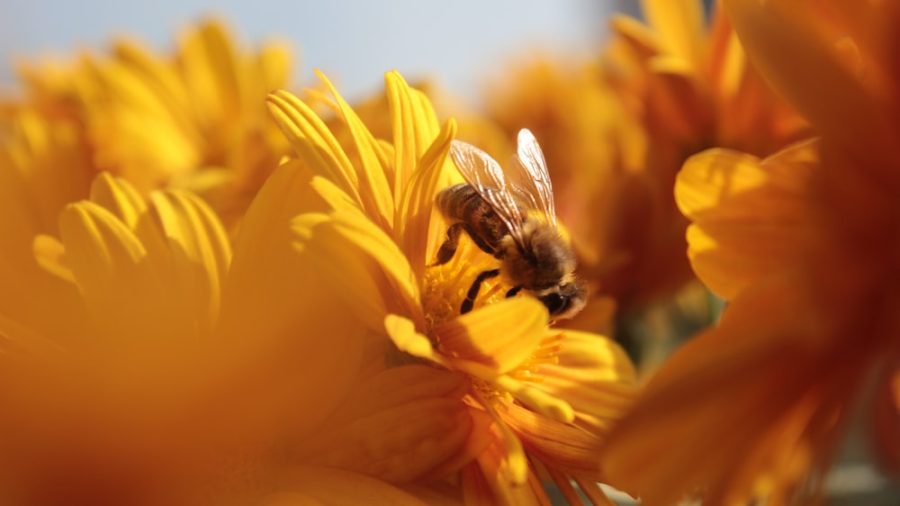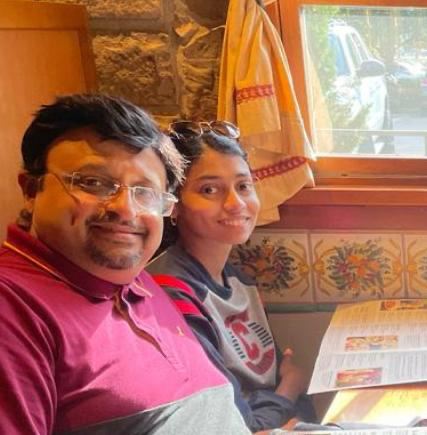Save the Bees
The bee population Is declining rapidly
Honey bee collecting pollen from a flower
Currently, bees are dying off at an alarming rate. In 1998, there were five million beehives in the US; today, that number has decreased by 50 percent. Known factors of this loss are pesticides, drought, habitat destruction, nutrition deficit, air pollution, global warming, parasites, and insecticides. Humans are largely responsible for the most prominent causes of bee loss: pesticides and habitat loss. Jaila Hardaway says “I think we as humans have impacted the bee population in a poor way. Instead of ignoring the situation, we should be spreading awareness and not polluting bee habitats.” According to University of California apiculturist, Eric Mussen, there are more than 150 different chemical residues in bee pollen.
“The loss of so many bees concerns me because of everything they provide for us,” says Giovanni Feitoza. This issue should be concerning because of the resources bees provide. Domestic and wild honey bees perform 80 percent of all pollination worldwide; fruits, nuts, and vegetables are pollinated by bees. Certain bees also produce honey, which has been used as both food and medicine since ancient times. Without bees, there would be altered ecosystems. Albert Einstein said “If bees disappeared off the face of the earth, man would only have four years left to live”.
Although this problem is severe, we can help before it becomes something that can not be undone. There are many things that can help the bee population: planting a bee garden with bee friendly gardens, going chemical free (not using chemicals like synthetic pesticides, fertilizers, herbicides, and neonicotinoids), create a bee bath (fill a shallow bird bath or bowl with clean water and arrange pebbles and stones inside), host a fundraiser, or only source local honey. The rapid decline of bees is concerning to mankind, if something is not done soon, major problems will arise.
Your donation will support the student journalists of Frisco High School. Your contribution will help us continue printing the paper and improve our site, participate in contests and help cover membership fees, and purchase equipment as necessary.













